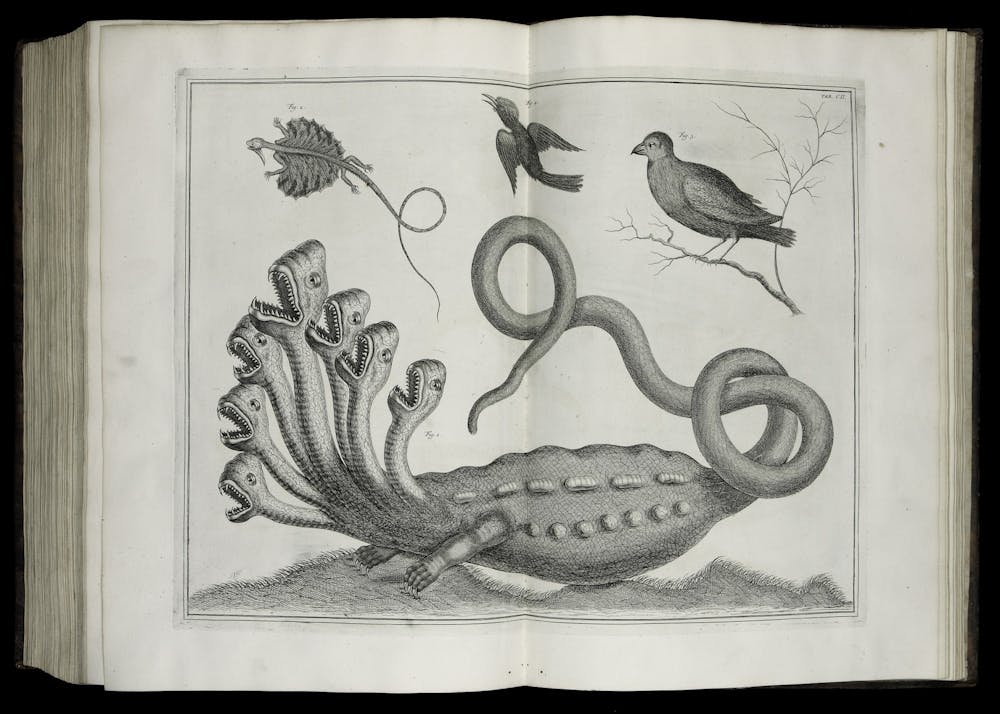Florence Fearrington, a 1958 UNC graduate, donated a rare book collection this summer valued at $6.2 million to University Libraries, which will be added to the Wilson Special Collections Library. Fearrington’s gift of over 4,000 books and objects is made up of several sub-collections, including natural history and children’s literature.
Elizabeth Ott, curator of rare books at UNC, said Fearrington and her husband began collecting books together, and when her husband passed away, Fearrington continued to build this collection on her own. Together, they developed an interest in natural history, and created collections in this area. Two of the sub-collections included in Fearrington’s contribution to UNC are a Wunderkammer collection and malacology collection.
Wunderkammer is a German word, meaning cabinets of wonder, or curiosities, Ott said. According to a University Communications article, Fearrington's collection includes books, catalogs and prints on Wunderkammers.
“Florence and her husband had wide-ranging interests, and if they saw books they loved, they would acquire them," Ott said. "So it has a certain amount of material that spoke to them and sparked their interest."
She said Fearrington’s contribution also includes children’s literature about the natural world, and a malacology collection that documents the study of shells, mollusks and conchs.
Fearrington graduated from UNC in 1958 with a degree in mathematics, and eventually moved to New York City to enter the world of finance.
“If you can imagine being a woman in the world of finance in the early 1960s in New York City, it definitely was a man’s world and she succeeded in it,” said Ott.
Fearrington continued to defy gender roles as she progressed into the realm of book collecting, which Ott said was kind of a “man’s world” at the time as well.
Her interest in shells and books about shells began during the summers she spent collecting them on the coast of North Carolina in her childhood. She then became interested in others who collected shells, and the books that documented these collections.




